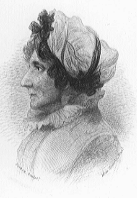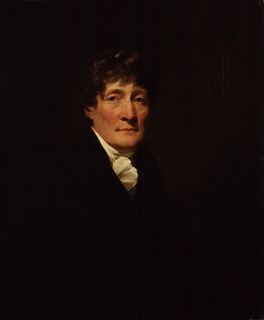Цитата Альберта Дж. Нока
Возможно, распространенность педантизма в значительной степени объясняется распространенной ошибкой, согласно которой, поскольку полезное знание следует запоминать, следует помнить и любое знание, которое вообще стоит изучать.
Связанные цитаты
Я считаю, что все знания должны находиться в зоне свободной торговли. Ваши знания, мои знания, знания всех должны быть использованы. Я думаю, что люди, которые отказываются использовать чужие знания, совершают большую ошибку. Те, кто отказываются делиться своими знаниями с другими людьми, совершают большую ошибку, ведь нам нужно все это. У меня нет никаких проблем с идеями, которые я получил от других людей. Если я найду их полезными, я просто облегчу их и сделаю своими собственными.
Как только ошибка исправлена, важно, чтобы ошибка была забыта, а запоминались только успешные попытки. Ошибки, промахи и унижения — все это необходимые шаги в процессе обучения. Как только они выполнили свою задачу, о них следует забыть. Если мы постоянно зацикливаемся на ошибках, то ошибка или неудача становятся целью.
Конечно, чтобы быть богатым, не обязательно иметь ученую степень. Вы просто должны иметь идеи. Возможно, диплом отбрасывает вас назад, потому что он втягивает вас в тик-так [ежедневную рутинную работу] и, возможно, душит ваш творческий ум. Но дело в том, что у многих миллионеров вообще мало образования. Тем не менее, у них все еще есть знания. Разница в том, что у них есть знания, которые они могут продать, а у других есть «общеизвестные знания» о тик-так, которые ничего не стоят, если вообще чего-то стоят.
Оппортунизм по отношению к знанию есть утилитаристское требование, чтобы знание было непосредственно практическим. Однако, как и в случае с социологией, цель которой, как мы надеемся, состоит в том, чтобы служить обществу, истинная цель социологии заключается в ее непрактичности. Оно не может стать практичным, иначе оно потеряет свое значение. Возможно, нам следует изучить другой вид знания: знание, которое ставит под вопрос знание.
Молодые джентльмены, которые должны показать миру свои познания, должны иметь все мотивы для подражания, должны формироваться в регулярные классы, должны вместе читать и спорить, должны пользоваться всеми почестями и, если можно так выразиться, пышностью общества. обучение, поставленное перед ними, чтобы вызвать их рвение. Это их дело, и они должны относиться к нему соответствующим образом.
Слово «математика» — греческое слово, и по происхождению оно означает «что-то, что было изучено или понято», или, возможно, «приобретенное знание», или, возможно, даже, несколько вопреки грамматике, «приобретаемое знание», то есть «приобретаемое знание». обучаемое знание», то есть «знание, приобретаемое путем обучения».
Что касается авторитета великих имен, то следует помнить, что только тот заслуживает иметь какой-либо вес и влияние в глазах потомков, кто показал свое превосходство над особым и преобладающим заблуждением своего времени; кто, как вершина Тенерифа, приветствовал интеллектуальное солнце до того, как его лучи достигли горизонта обычных умов.
Если бы мы помнили все, в большинстве случаев нам было бы так же плохо, как если бы мы ничего не помнили. Нам потребовалось бы столько же времени, чтобы вспомнить промежуток времени, сколько потребовалось первоначальному времени, чтобы пройти, и мы никогда не должны продвигаться вперед в своем мышлении. Соответственно, все вспоминаемые времена претерпевают то, что М. Рибо называет ракурсом; и этот ракурс происходит из-за упущения огромного количества фактов, которые их заполняли.
Мы слышали об Обществе распространения полезных знаний. Говорят, что знание — сила, и тому подобное. Мне кажется, в равной степени необходимо Общество для распространения полезного невежества, того, что мы назовем Прекрасным знанием, знанием, полезным в высшем смысле: ведь то, что в большинстве своем является нашим хвастливым так называемым знанием, не является тщеславием, что мы знаем что-то, что лишает нас преимущества нашего фактического невежества? То, что мы называем знанием, часто является нашим позитивным невежеством; невежество наше негативное знание.
Поспешить с событием до того, как его значение успело отделиться от окружающих обстоятельств, может быть предприимчиво, но полезно ли это? ... Недавнее преобладание этих горячих историй в списках издателей поднимает вопрос: следует ли - или, возможно, можно ли - писать историю, пока она еще дымится?
Знание, которое поддерживается только наблюдениями и еще не доказано, должно быть тщательно отделено от истины; это достигается индукцией, как мы обычно говорим. Тем не менее мы видели случаи, когда простая индукция приводила к ошибке. Поэтому мы должны с большой осторожностью не принимать за истинные такие свойства чисел, которые мы открыли путем наблюдения и которые подтверждаются одной лишь индукцией. В самом деле, мы должны использовать такое открытие как возможность более точно исследовать обнаруженные свойства и доказать или опровергнуть их; в обоих случаях мы можем узнать что-то полезное.







































